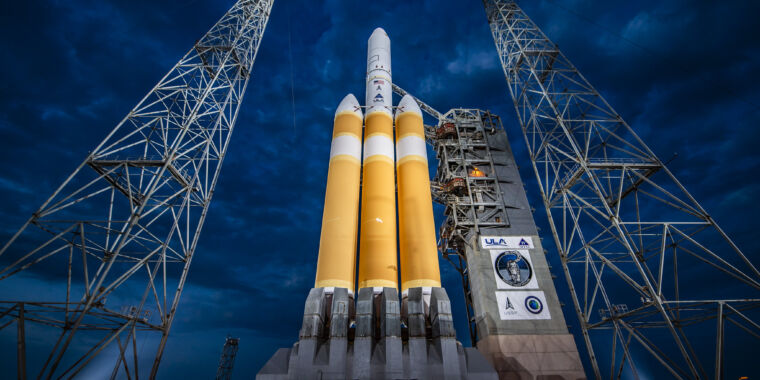United Launch Alliance
Welcome to Edition 6.37 of the Rocket Report! The big story this week is the final launch of the Delta IV Heavy rocket, which is one of the biggest spectacles to enjoy lifting away from the planet. Because of a scrub on Thursday, there is still time to clear your calendar for a second attempt on Friday at 1:37 pm ET in Florida.
As always, we welcome reader submissions, and if you don’t want to miss an issue, please subscribe using the box below (the form will not appear on AMP-enabled versions of the site). Each report will include information on small-, medium-, and heavy-lift rockets as well as a quick look ahead at the next three launches on the calendar.

Orbex patents reusable rocket tech. The British launch company said this week it has patented a “REFLIGHT” technology that enables the recovery of the first stage of its small Prime rocket. Essentially, Orbex designed an interstage that will function somewhat like grid fins on the Falcon 9 rocket’s first stage. “After Stage 1 detaches from Stage 2, the interstage on top of Stage 1 reconfigures into four ‘petals’ which fold out and create drag forces that passively reorients and slows the spent rocket stage’s descent to Earth,” the company stated.
Show me, don’t tell me … This petal structure will combine with a parachute to enable a low-speed landing at sea, where Orbex plans to recover its first stage. It all sounds good, but this seems to be something of putting the cart before the horse. Orbex is now nearly 9 years old, and it’s not clear when the Prime rocket will take flight for the first time. As with all small launch companies, the focus should really be getting to the first flight, demonstrating a capability, and then ramping up launch cadence. Talk of reuse and recycling is great. But flying is better. (submitted by EllPeaTea)
Boeing sues Virgin Galactic. Boeing and its subsidiary, Aurora Flight Sciences Corporation, have sued Virgin Galactic, alleging the space tourism company has misappropriated trade secrets, The Register reports. In 2022, Virgin Galactic selected Aurora to build new motherships for its spacecraft as replacements for the VMS Eve carrier aircraft. The lawsuit alleges that Virgin Galactic has failed to pay it almost $26 million for work on new craft.
Going forward with just one aircraft … At the time of the agreement, Virgin Galactic said it needed new motherships to support an increased cadence of spaceflights. Virgin Galactic CEO Michael Colglazier said, “Our next-generation motherships are integral to scaling our operations. They will be faster to produce, easier to maintain, and will allow us to fly substantially more missions each year.” The first delivery was due in 2025. After it began work on the project, Aurora concluded that a new mothership would cost nearly twice as much as Virgin Galactic hoped and would not be completed before 2027. Now, Virgin Galactic plans to soldier on with just Eve for the time being. (submitted by EllPeaTea and Ken the Bin)
JAXA inks with Interstellar Technologies, others. Japan’s space agency has selected startup Interstellar Technologies as a priority launch provider as part of a program to advance the commercialization of space, Space News reports. Space One, whose Kairos solid rocket exploded seconds after liftoff earlier this month, was also selected under the small satellite initiative by JAXA, as were Space BD and Mitsui Bussan Aerospace.
Broadening the domestic industry … The agreements mean the companies will have priority for future contracts. These are designed to support private-sector entities capable of launching satellites developed under JAXA’s small satellite missions and advance the commercialization of space transportation services. Japan is targeting a domestic launch capacity of approximately 30 institutional rockets and private rockets per year by the early 2030s. (submitted by Ken the Bin)

Dr. Thomas Hughes is a UK-based scientist and science communicator who makes complex topics accessible to readers. His articles explore breakthroughs in various scientific disciplines, from space exploration to cutting-edge research.








